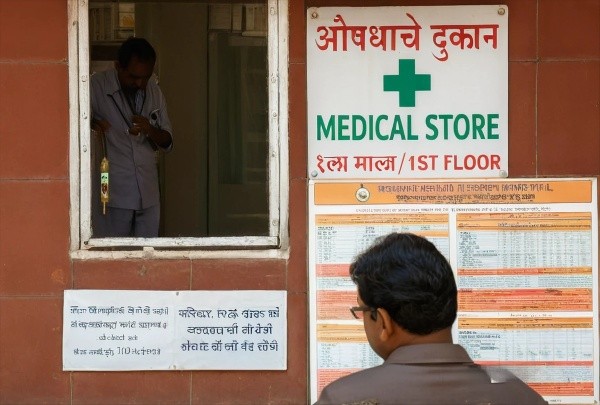Iran’s Plan to Strike Back Against the U.S.
Iran’s Military Preparations Following U.S. Attacks
Loading...

Hospitals hit by 24-hour shutdown as protests demanding protection for health workers and condemning violence swell.
A Call for Justice and Safety
In a powerful response to the tragic rape and murder of a trainee doctor in Kolkata, hundreds of thousands of health workers across India have initiated a nationwide strike. This protest, which began on Saturday, August 17, 2024, aims to highlight the urgent need for better protection for healthcare professionals and to condemn the escalating violence against women in the country.
The strike, organized by the Indian Medical Association (IMA), commenced at 6 AM local time, effectively shutting down non-emergency medical services across hospitals and clinics nationwide. Only emergency cases were attended to, with medical faculty stepping in to manage critical situations. The IMA, representing over 400,000 medical professionals, has called for this unprecedented 24-hour shutdown to demand justice for the victim and to advocate for safer working conditions for all healthcare workers.
The Catalyst for Protest
The catalyst for this nationwide movement was the brutal discovery of the 31-year-old doctor's body on August 9 at the RG Kar Medical College and Hospital, where she was working a grueling 36-hour shift. An autopsy confirmed that she had been sexually assaulted, igniting outrage and protests in multiple cities. Demonstrators gathered in Kolkata, chanting, “We want justice,” and holding placards that read, “Hands that heal shouldn’t bleed.” The sentiment echoed across the nation, as many expressed their fears about safety in their workplaces, particularly for women.
Antara Das, a medical student participating in the Kolkata protests, voiced the collective anxiety, stating, “If this happened inside a hospital that is a second home to us, where are we safe now?” This sentiment resonates deeply within the medical community, where many feel increasingly vulnerable.
Nationwide Impact and Solidarity
The strike has significantly impacted healthcare services in major cities, including Lucknow, Ahmedabad, Guwahati, and Chennai. Hospitals have turned away patients, and the disruption has raised concerns about the availability of medical care for those in need. The protests have not only been led by doctors but have also seen participation from various segments of society, including women's rights groups, who are demanding systemic changes to address violence against women.
Rakhi Sanyal, a doctor and professor in Kolkata, condemned the “brutal murder” and emphasized the responsibility of the administration to ensure the safety of healthcare workers. She stated, “This should not have happened,” highlighting the urgent need for reforms.
Demands for Legislative Change
In light of this tragedy, doctors are calling for the implementation of the Central Protection Act, which aims to safeguard healthcare workers from violence. They are also advocating for stricter laws that would classify any attack on on-duty medical personnel as a non-bailable offense. The IMA has expressed that both the medical community and the broader society are victims of this violence, underscoring the need for comprehensive legal protections.
As the investigation into the murder continues, with one suspect already detained, there is a growing demand for accountability and transparency in handling such cases. Many crimes against women in India remain unreported due to societal stigma and a lack of trust in law enforcement, making the call for justice even more critical.
A Broader Movement for Change
The protests in Kolkata and beyond are not just about the tragic fate of one doctor; they symbolize a broader struggle against the pervasive culture of violence against women in India. As one protester poignantly stated, “This is both about the Kolkata doctor who was brutalized and every woman who has faced sexual violence or harassment in the country.”
The nationwide strike serves as a stark reminder of the urgent need for societal change, better protections for healthcare workers, and a commitment to ensuring safety for all women in India. As the protests continue, the hope for justice and reform remains a rallying cry for many across the nation.
Editor
Iran’s Military Preparations Following U.S. Attacks
Troops remain in five strategic locations, raising fears of renewed tensions and long-term occupation.
Opposition forces have taken control of the capital after a significant offensive. Here is how it unravelled.
